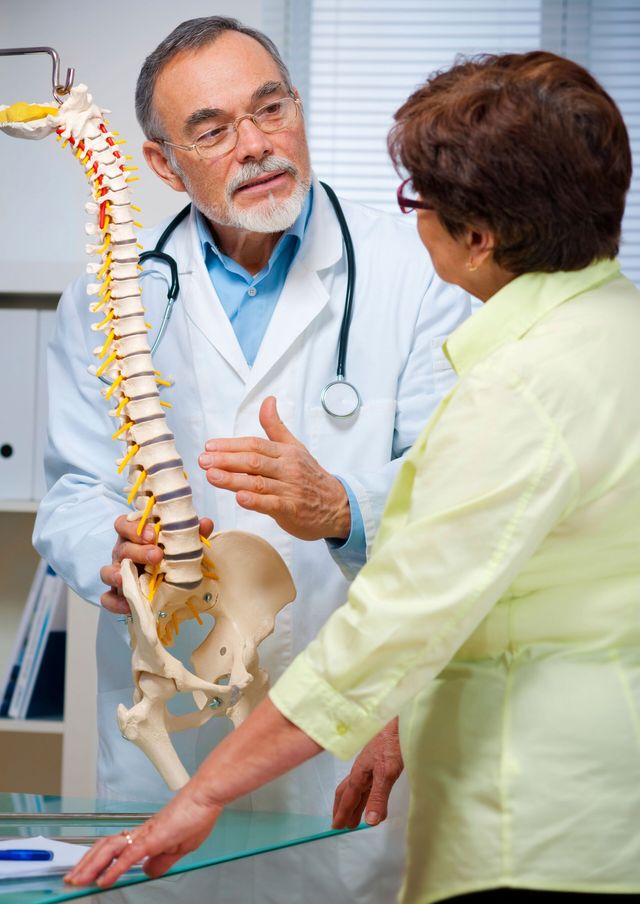
Unlocking Musculoskeletal Wellness through Comprehensive Orthopedic Evaluations
In the realm of healthcare, the significance of orthopedic evaluations cannot be overstated. These assessments play a pivotal role in understanding and addressing a myriad of musculoskeletal issues, ultimately paving the way for enhanced overall health and well-being.
The Foundation of Orthopedic Evaluations
Orthopedic evaluations serve as the foundation for diagnosing and treating conditions related to the musculoskeletal system. This intricate network of bones, muscles, joints, ligaments, and tendons requires meticulous examination to identify issues such as fractures, arthritis, sports injuries, and other orthopedic disorders. These evaluations often involve a combination of medical history reviews, physical examinations, and advanced imaging techniques.
Precision in Diagnosis and Treatment Planning
One of the primary benefits of orthopedic evaluations lies in their ability to provide precision in diagnosis. By thoroughly assessing the patient’s symptoms, medical history, and utilizing imaging technologies such as X-rays or MRI scans, healthcare professionals can pinpoint the root cause of musculoskeletal issues. This precision is instrumental in developing targeted and effective treatment plans tailored to the individual’s needs.
Early Intervention and Preventive Measures
Orthopedic evaluations contribute significantly to early intervention, a critical factor in preventing the progression of musculoskeletal disorders. Through timely and accurate diagnoses, healthcare providers can implement interventions that may include physical therapy, medications, or, in some cases, surgical procedures. Early identification and intervention not only alleviate current symptoms but also mitigate the risk of long-term complications.
Comprehensive Assessment for Athletes
For athletes, orthopedic evaluations are indispensable in optimizing performance and preventing injuries. These assessments go beyond merely diagnosing existing issues; they encompass a comprehensive evaluation of an athlete’s biomechanics, training regimen, and potential areas of vulnerability. By addressing these factors, orthopedic specialists can devise personalized strategies to enhance athletic performance and reduce the risk of sports-related injuries.
Technological Advancements in Orthopedic Assessments
The landscape of orthopedic evaluations has evolved significantly with advancements in technology. Cutting-edge tools, such as 3D imaging, arthroscopy, and wearable devices, empower healthcare professionals to conduct more precise and detailed assessments. These technological interventions not only improve diagnostic accuracy but also contribute to a more holistic understanding of musculoskeletal health.
The Role of Orthopedic Evaluations in Aging Populations
As the global population ages, orthopedic evaluations become increasingly vital in addressing age-related musculoskeletal issues. Conditions like osteoarthritis and osteoporosis can impact the quality of life for older individuals. Through regular orthopedic assessments, healthcare providers can develop strategies to manage these conditions, enhance mobility, and improve overall well-being in the elderly.
Orthopedic Evaluations: A Link to Informed Decision-Making
In the pursuit of holistic healthcare, informed decision-making is paramount. Orthopedic evaluations serve as a crucial link in this process by providing comprehensive insights into musculoskeletal health. Whether it’s a professional athlete aiming to optimize performance or an individual seeking relief from chronic pain, the data derived from these evaluations guide both patients and healthcare providers in making well-informed decisions about treatment options and lifestyle adjustments.
Promoting Long-Term Musculoskeletal Health
Beyond immediate diagnoses and treatments, orthopedic evaluations contribute to the promotion of long-term musculoskeletal health. By identifying risk factors, recommending preventive measures, and fostering patient education, healthcare professionals empower individuals to actively participate in maintaining the well-being of their musculoskeletal system.
Orthopedic Evaluations: A Gateway to Improved Quality of Life
In conclusion, orthopedic evaluations act as a gateway to improved quality of life by unraveling the complexities of musculoskeletal health. Through precise diagnoses, early interventions, technological advancements, and a focus on holistic well-being, these evaluations play a pivotal role in shaping the future of healthcare. To delve deeper into the realm of orthopedic assessments, explore Orthopedic Evaluations for valuable insights and resources.
